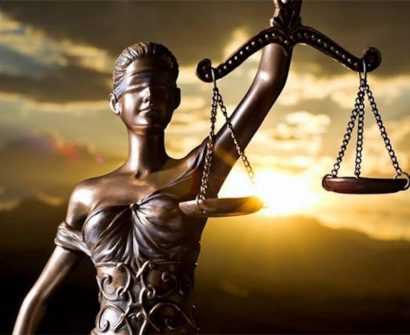
According to the abhayanand mishra v the state of bihar case, an individual’s desire alone is insufficient evidence of their guilt. The commission of the offense must be completed in order to convict someone. Section 511 specifies the penalty for attempting an offense, which is life imprisonment or worse. section 420 of ipc specifies the penalty for lying, cheating, and dishonesty.
abhayanand mishra v the state of bihar Case Facts
- The appellant submitted an application to the University of Patna seeking permission to run as a private candidate in the M.A. Examination (English).
- He demonstrated that he was a teacher in a school and that he has a B.A.
- He was requested to attach specific credentials with his application. He included the certifications he claimed to be from the school’s inspector and headmaster.
- The University’s administrators approved the application and gave him permission to take the test.
- The school’s headmaster received the entrance card.
- As soon as the University learned that the appellant was not a graduate or a teacher.
- Additionally, it was discovered that the certificate he had provided for admission had been falsified, and he had been disqualified from enrolling in any university exam. He used dishonest methods in university exams, which was the cause.
- Following a police report, an investigation was launched into the case.
- He was found guilty of trying to deceive the University and defraud by making false representations.
- He was charged under section 420 of ipc in conjunction with section 511 of ipc, and found guilty.
- He appealed to the Patna High Court, but the decision was made to dismiss the case.
- Subsequently, he appealed the Patna High Court’s ruling by special leave to the Supreme Court.
- The appellant made two arguments: first, that the admittance card is worthless and does not qualify as property under section 415 of the ipc; second, that he did not conduct any cheating offense because his actions were limited to preparation.
abhayanand mishra v the state of bihar Issues
- Is it possible for the appellant to maintain his appeal against his conviction?
- Is the appellant’s conviction in accordance with Sections 420 and 511 of the Indian Penal Code, 1860 accurate?
Contentions by the Parties
Petitioner:
- The entrance card has no monetary value associated with it, hence it cannot be classified as property according to Section 415 of the Indian Penal Code, 1860.
- His actions were only a pretext for committing the crime; no actual criminal act was attempted. So, it is not possible to prove that cheating is an offence under Section 420 IPC.
Respondent:
- Conversely, the respondent leaned on the testimony provided by the University’s accountant at the Patna High Court, which claimed that the appellant had inquired about his application, admittance card, and signatures on it. In order to verify that the appellant’s handwriting on the application matched his signatures, the government writing expert was called in.
- It was further emphasized that the appellant did not inquire about the submission of documents or respond to urgent messages from the University’s Controller of Examinations. According to the respondent, the appellant attempted to commit the crime of cheating with the institution by submitting an application for admission.
abhayanand mishra v the state of bihar Judgment
- When he completed the application to be submitted to the university, the Supreme Court noted that the preparation was finished. He was in the zone of trying to commit the crime of “cheating” the minute he fired it.
- The Supreme Court ruled that, in accordance with section 511 of ipc, an individual is guilty of the crime of attempting to commit a specific offence when, having made preparations and intending to commit the offence, they take a step toward committing it. This step need not be the penultimate step toward committing the offence; rather, it must be taken during the course of committing the offence.
- He was successful in tricking the university into issuing the admittance card. He merely didn’t understand it and didn’t show up for the test because of an unforeseen circumstance that occurred when the university found out that he wasn’t a graduate or a teacher.
- According to the SC, the entry card is “property.” Because of this, if the University had not withdrawn the appellant’s admission card after receiving relevant information, she would have been found to have engaged in “cheating.”
- The Court dismissed the appellant’s appeal after finding that the appellant had been rightfully convicted of the offence according to section 420 of ipc read with section 511 of ipc.
The respondent was found to win the case in the court. It came to the conclusion that the appellant would be held accountable under sections 420 of ipc read with section 511 of ipc since he had already finished the application process, demonstrating that an attempt had been made.
For any latest news, legal topics, judiciary exams notifications, patterns, etc watch Jyoti Judiciary’s YouTube channel for legal videos for any updates at https://youtube.com/@jyotijudiciarycoaching4852?si=2cwubh9d2A9urwJf









